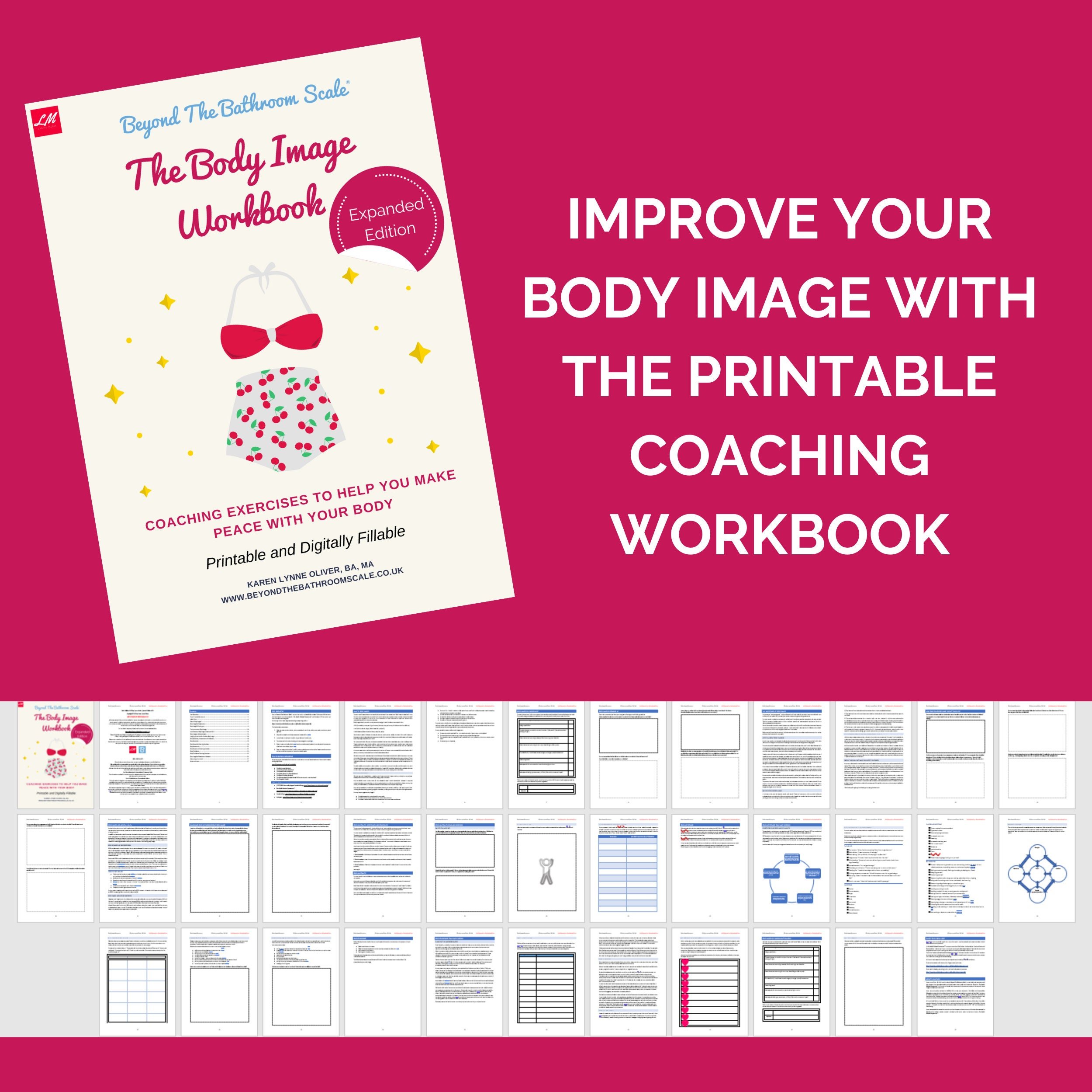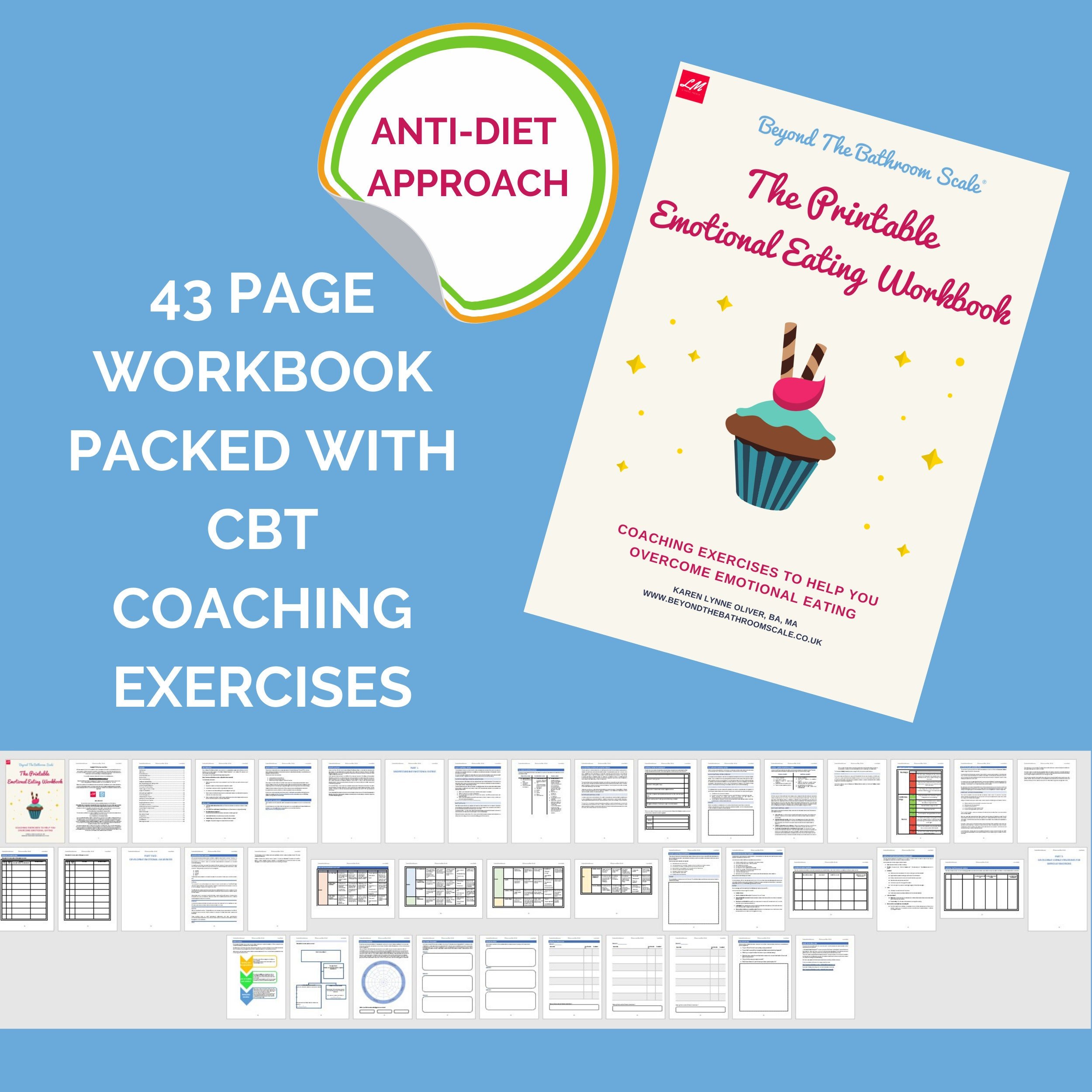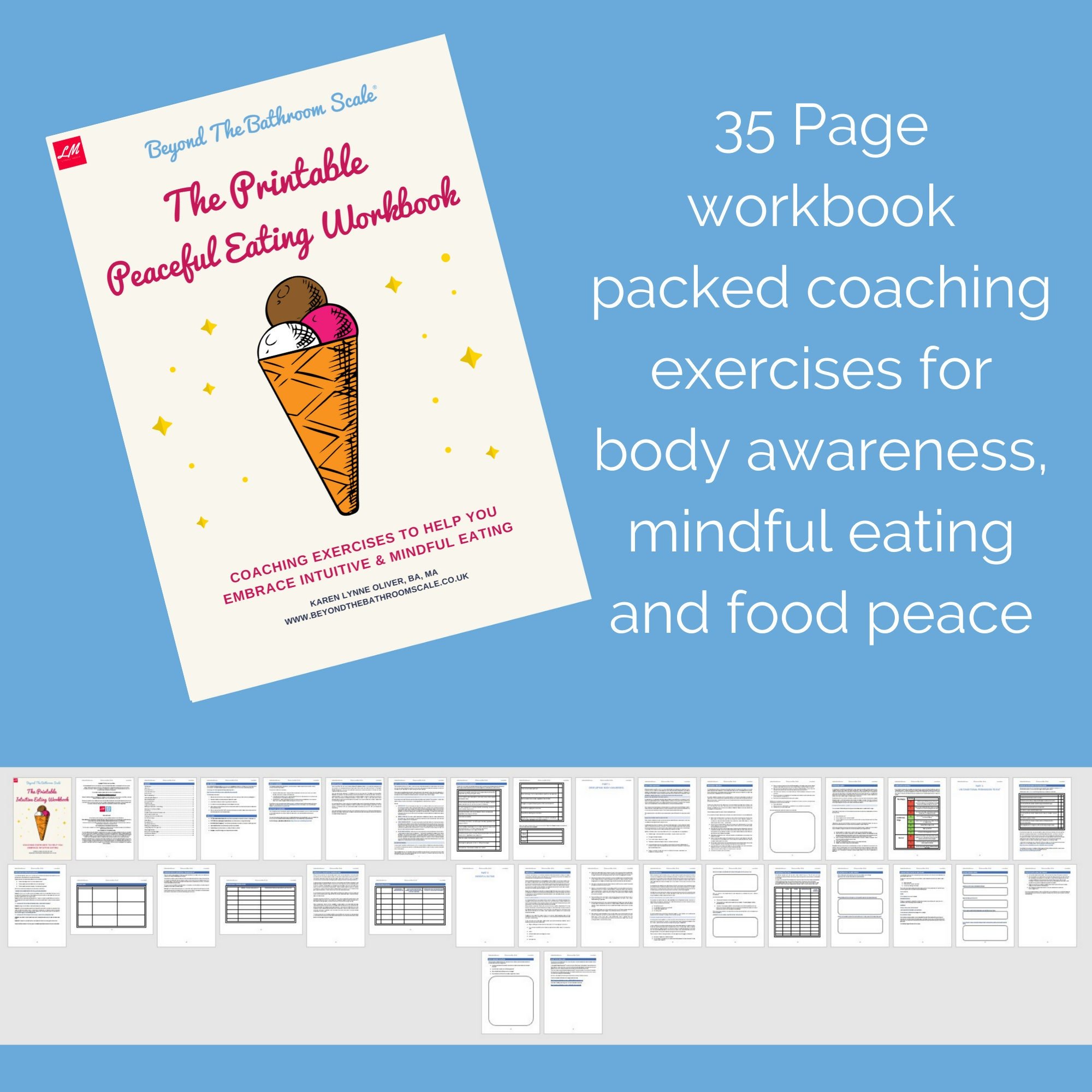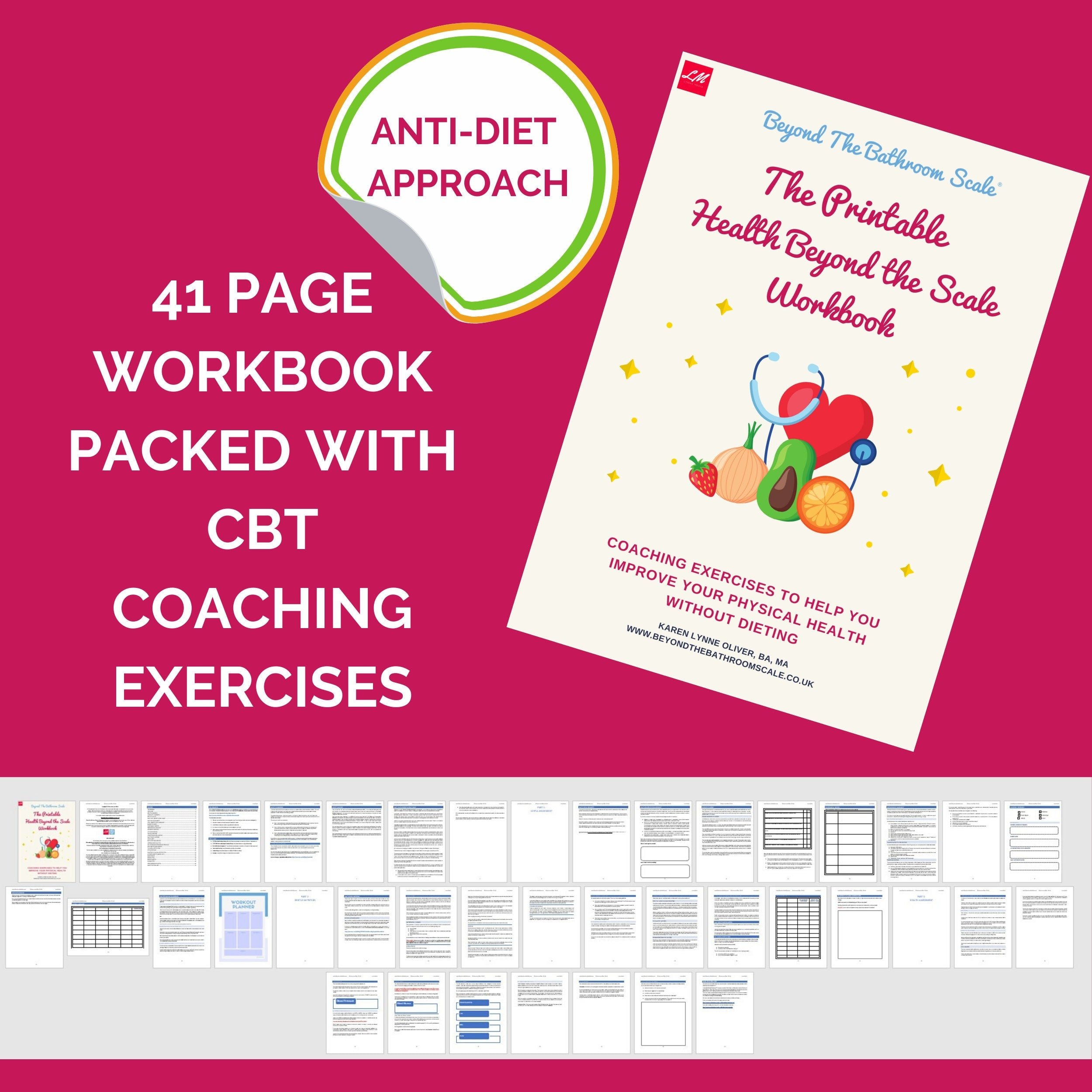Are you really hungry? How to Identify the Source of Your Hunger
A pivotal aspect of Intuitive Eating is developing (or rather re-learning) the ability to identify whether or not you are physically hungry and then meeting that need unconditionally. I want to emphasise that this is not about reducing Intuitive Eating down to the soundbite of "only eat when you are physically hungry", Intuitive eating is much more than that! Having a truly peaceful relationship with food means also having a non-judgemental awareness of the different types of hunger we experience, such as emotional hunger or hunger triggered by our senses, rather than a physical hunger or biological urge for nourishment.
Sometimes we will turn to food for enjoyment or comfort at a time when we're not experiencing physical (stomach) hunger, or we'll eat something simply because it stimulates our senses; a food looks, sounds and smells delicious and so we want it! All of this is a perfectly normal part of the human existence and isn't something to feel guilty about (as the diet industry would have you believe).
The benefits of having awareness of different types of hunger
So you may be wondering, "if eating to meet emotional hunger, or just eating because a food looks good, is acceptable, then why should I pay attention to whether or not I'm physically hungry?".
Remember: this is about having a non-judgemental awareness of your needs. So you're not developing this level of awareness in order to berate yourself whenever you continue to eat on a full stomach, because you've had a stressful day and need comfort, or because you're having a great three-course meal at a wedding which you continue eating long after you feel full.
It's not about shaming you for comfort eating, instead, it's about ensuring that you are meeting your needs in the best way possible.
Let's use the example of emotional eating, as this one is often thought of as the most problematic. Comfort eating tends to be viewed as an eating problem, when really it's a call to meet our emotional needs, either through self-care or an alternative coping strategy which tackles they emotional need directly. Recognising the difference between physical hunger and emotional hunger and having an awareness of this before we eat, means we can ask ourselves, whether food is going to be more or less effective than meeting our emotional need with an alternative coping strategy. For many people, eating for comfort is only a temporary measure to alleviate discomfort: it makes you feel better in the short-term, but it doesn't tackle the cause of the emotional hunger; it's just putting a bandage on the emotional wound.
Eating when you're already physically full can also lead to physical discomfort, which you're likely wanting to avoid if you're consciously working on improving your relationship with food. So with this in mind, let's look at the different types of hunger you may experience so that you can have an awareness of the cause of your hunger.
The Eight Different Types of Hunger
Jan Chozen Bays M.D. outlined 8 different types of hunger in the book, Mindful Eating: A Guide to Rediscovering a Healthy and Joyful Relationship with Food.
1) Eye hunger
As you've probably guessed this is triggered by seeing food. It might be that you've seen someone nearby eating something you like the look of, or seen a poster, photo in a menu, or a recipe in a magazine.
2) Nose hunger
This type is triggered by the smell of food. Bacon cooking in the morning, the smell of freshly baked bread, the smell of food cooking as you walk past a restaurant.
3) Ear hunger
This can be triggered by talk of food and also by food sounds. Like the snap of chocolate, the crunch of crisps, the sound of popcorn popping, the fizz sound of a can or bottle of fizzy pop.
4) Mouth hunger
Mouth hunger is driven by wanting to experience a particular taste or texture, for the sake of a pleasurable sensation. A good example of this is when you're eating a piece of really good chocolate and it begins to melt in your mouth and coat your tongue. You want to eat more because it's a pleasurable sensation, even when you're feeling physically full. You might even be experiencing this hunger right now by thinking of the sensation.
5) Stomach hunger (i.e. biological hunger)
Stomach hunger is 'real', physical hunger, the one we want to make sure we're meeting unconditionally. I'll come back to the symptoms of biological hunger later, as often we forget what it feels like because we're eating in response to the other types of hunger, and therefore never experience true biological hunger. It can also be the case with chronic dieters who restrict food intake, that they've become attuned to ignoring the uncomfortable sensations of biological hunger.
6) Mind hunger (i.e. 'should' food rules)
This is when we tell ourselves what we 'should' be hungry for. "I should drink more water", "I should eat more protein", "I should eat a snack after my workout", I should eat a smaller portion of this and be satisfied". As you can imagine, mind hunger is tightly linked with food rules and can be a very overpowering internal voice for long-term dieters.
7) Cellular hunger (i.e. biological cravings).
This when your body is crying out for something it's nutritionally lacking in or needs. You will have probably experienced this if you've ever been pregnant. You may have also experienced this when you've been ill and on wanted to eat or drink a certain food (soup, orange juice). This type of hunger is best satisfied by eating a balanced diet rich in vitamins, minerals, water, carbohydrates, fats and proteins.
8) Heart Hunger (.i.e. emotional hunger)
Also known as the desire to comfort eat. An example of this may be when you're stressed, tired and bored at work and want to eat all of the sugary snacks your colleagues have brought in. Or when you get in at night after a hellish day and just want to eat a takeaway and drink a bottle of wine.
Emotional eating isn't nearly as simple as people think as there's a lot of underlying causes for it (which I talk about in great depth as part of the Emotional Eating module in my coaching app for intuitive eating).
As with all the other types of non-biological hunger, it's nothing to feel guilty for either as its a very normal human reaction. Most of the time, it's not even a problem, as food can be comforting, enjoyable and pleasing to us and there's nothing morally wrong with enjoying the food.
The main concern with emotional eating is when it becomes an individual's only coping mechanism and also the possibility of it masking an underlying mental health issue, like anxiety or depression for example.
Symptoms of biological hunger
For the purpose of Intuitive Eating, and making sure that we always meet our physical need for hunger, I want to focus now on biological hunger and the symptoms and sensations of biological hunger.
As you read this, I want you to think about how aware you are when you experience these sensations and what actions you take.
Do you dismiss them? Do you mistake them for something else? Or do you leave it too long to meet them and then feel the urge to binge eat when you finally come to eat?
I also want to note that we're all different and there's no one way to feel biological hunger - you may not experience all of these sensations, you may even experience sensations I haven't listed here.
So, with that said, let's look at how different parts of your body may respond to biological hunger, in its attempt to communicate to you it's need for energy and nourishment and the other sensations you might experience:
Stomach sensations: include rumbling, gurgling, gnawing, emptiness, dull pain and aches
Mind: inability to think clearly, concentrate or focus, headaches, dizziness, lightheadedness. You may also have thoughts about food and eating, which is your body is being very clear about what you need to be focusing on and screaming at you to get up from your desk and take a lunch break!
Mood: - you may be irritable and find yourself feeling quick to temper, impatient or apathetic. This is your body increasing the sense of urgency to eat
Energy - feeling tired, lethargic
Numbness - not being able to feel anything other than hunger and lethargy
Nausea - you can feel so hungry that you feel nauseous
Remember: Whenever you experience the physical sensation of hunger, the kindest action you can take for your body is to meet the physical need for food, unconditionally and to do so before the feeling of physical hunger becomes an unpleasant or desperate one. In doing so, you'll promote a healthier relationship with food and reduce the risk of binge eating in response to intense physical hunger, to the point of physical pain or discomfort.






